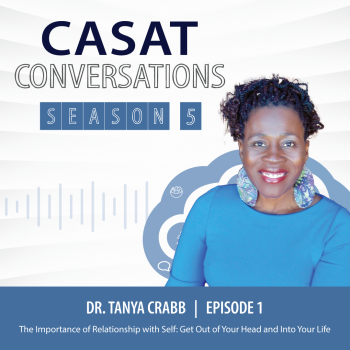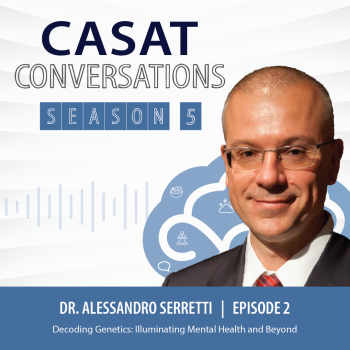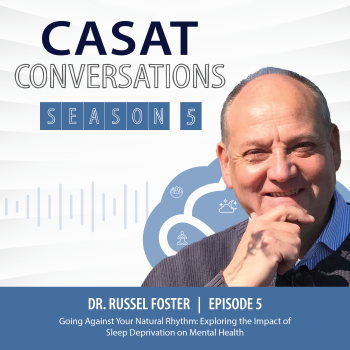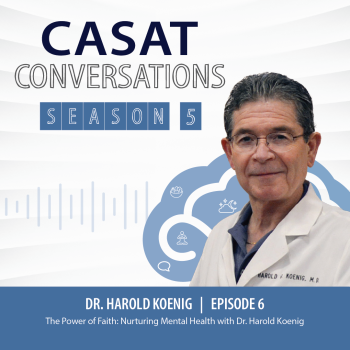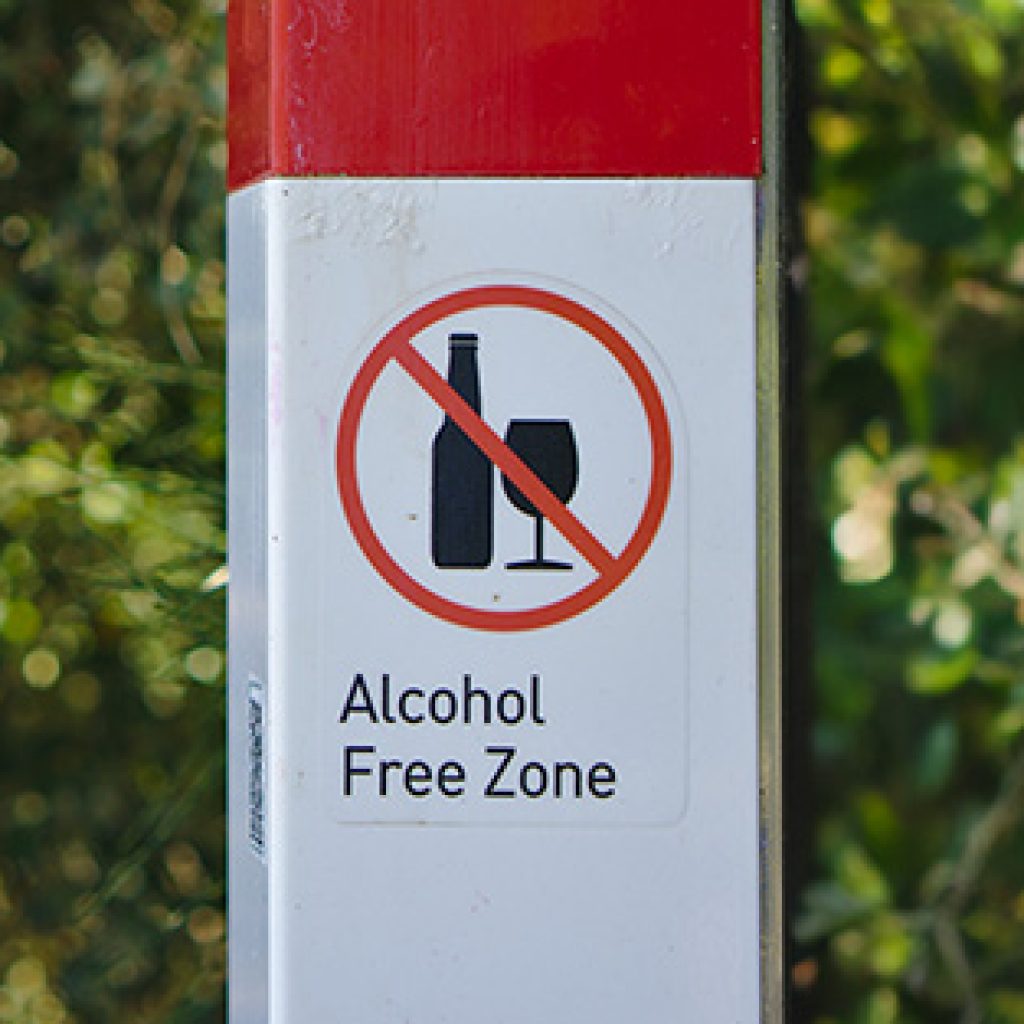Rooted Resilience: CASAT Conversations Season 5 Wrap Up
Season 5 of CASAT Conversations includes ten educational episodes – full of information about building and maintaining mental well-being. Each conversation underscores the dynamic connection between physical, mental, emotional, and spiritual dimensions of well-being. We interviewed people from around the world – including Ireland, the United Kingdom, Italy, Brazil, and the United States. Eight of the ten episodes explore the foundational roots of mental health, which include genetics, physical activity, sleep, spirituality/religion, life experiences, and connection with self and others. The other two episodes interview a Traditional Chinese Medicine doctor and an Ayurvedic doctor to understand how ancient healing systems view mental health. Each episode is outlined below.
Dr. Tanya Crabb, Senior Psychologist at the Kirk Kerkorian School of Medicine, highlights the complex interplay of mental health, physical health, culture, trauma, adverse childhood experiences, gender roles, and family history. She emphasizes the importance of a mind-body approach to mental health, encouraging health professionals to peel back the layers and look deeply into each client’s life experiences. She stresses the importance of approaching individuals with curiosity and respect. Lastly, we discuss the importance of self-love and how at the heart of caring for oneself and having mental well-being is developing a deep and nurturing relationship with the self.
Dr. Alessandro Serretti, Associate Professor of Psychiatry at Bologna University, Italy, illustrates the current landscape of genetics research. He describes some of the history of genetics research as well as future possibilities, which include exciting ways that we may be able to better prescribe medications utilizing genetic information. Dr. Serretti explains the link between genetics and mental health and how genes are not our destiny but that they are a vital piece of the mental health puzzle. With over 30 years of experience as a Psychiatrist and researcher in the field of Genetics, he shares his vision for the future of genetic research and how it can help improve mental well-being.
Dr. Felipe Schuch, Adjunct Professor at the Federal University of Santa Maria in Brazil, discusses the profound impact of physical activity on mental well-being, including its effects on the biology of the brain. He shares best practices regarding moving the body and the importance of a person-centered approach to physical activity, which is best when supporting a person to incorporate more movement. Dr. Schuch sheds light on the psychological factors that drive our engagement in physical activity and reveals the dosing effect—how the frequency, duration, and intensity of exercise can positively impact mental well-being. Lastly, he reveals how exercise has a protective effect on mental well-being.
Dr. Ted Dinan, Emeritus Professor of Psychiatry, Principal Investigator in APC Microbiome Ireland at University College Cork, and Medical Director of Atlantia CRO, conveys the intricate connection between our gut microbiota and brain health. Dr. Dinan imparts his decades of research findings and discusses how the Mediterranean Diet is the leading diet for supporting mental health. He also discusses how certain foods and pharmaceuticals can negatively impact the gut microbiome and brain health.
Dr. Russell Foster, Head of Oxford’s Nuffield Laboratory of Ophthalmology, the founder and Director of the Sleep and Circadian Research Institute, and Fellow of Brasenose College Oxfordus, discusses the importance of sleep on mental health. He explains why sleep is crucial and how you know if you are getting enough sleep. Dr. Foster explains the importance of not going against our Circadian rhythm in a fast-paced world that sometimes doesn’t think sleep is essential. He shares compelling stories and statistics regarding the catastrophic impacts of not getting enough sleep and the long-term implications. Of particular interest might be those who do shift work and how research seeks to understand how to support people who aren’t able to follow their natural rhythm due to their work schedule. He offers real-world examples and shares the latest research on this important topic.
Dr. Harold Koenig, professor of Psychiatry and Behavioral Sciences at Duke University, shares his journey in understanding how religion and spirituality impact mental health. Dr. Koenig expertly explains the difference between spirituality and religion, shedding light on their unique aspects and the challenges of studying spirituality within research. He shares how faith is an essential element of mental well-being and even shares its impact on his life. He reviews key implications for public health professionals and the importance of a patient-centered approach when integrating religion, spirituality, and spiritually-based practices like mindfulness. Finally, we touch upon the concept of moral injury and how religion can provide invaluable support in healing.
Fabricia Prado, a Licenced Clinical Social Worker from Georgia, examines the profound impact of Adverse Childhood Experiences (ACEs) and their role as the root cause of both physical and mental illness. She stresses the importance of developing awareness and understanding of how traumatic life experiences get stored in the body and the need for understanding how healing from trauma requires a holistic approach that involves mind, body, and spirit. Fabricia shares many real-world examples of community-based initiatives currently being implemented in Georgia that have helped make Georgia a trauma-informed state. She discloses her intention to make our society more supportive and nurturing for those affected by ACEs and that by addressing trauma early, ultimately, she seeks a world where trauma doesn’t exist.
Dr. Howard Chen, a board-certified family physician and practitioner of integrative medicine, lifestyle medicine, medical acupuncture, and Traditional Chinese Medicine, describes his journey to help bridge the gap between the ancient wisdom of Classical Chinese Medicine and modern medicine. He describes the vital role that each way of practicing medicine plays and hopes to be able to integrate the two in service of seeing the best outcomes for a patient. Dr. Chen defines the principles and practices of Classical Chinese Medicine, and he explains the interrelated nature of mental and physical wellness by explaining how emotions are expressed in the body through our organs.
Dr. Sheila Patel, a board-certified family physician, and Chief Medical Officer for Chopra, explains the foundational principles of Ayurveda, along with her journey in the field of medicine and how she came to practice Ayurveda alongside Western medicine. Ayurveda’s holistic approach aims to treat the entire individual, identifying the root causes of ailments and striving for balance. She explains how, in Ayurveda, two-thirds of disease is attributed to mental and emotional factors, underscoring the interconnected nature of the mind and body. Dr. Patel describes the three psychophysiological behavior types known as doshas in Ayurveda. She advocates that we don’t need to reinvent the wheel when it comes to the prevention or management of chronic disease; we can tap into the ancient wisdom of Ayurveda that is now being validated by modern science and people’s lived experiences.
Cornelius Sheehan, a Licensed Clinical Social Worker, a certified Emotional Focused Therapist, and Attachment-based Therapist from Nevada, highlights the powerful relationship between social connections and mental health. He describes the overwhelming impact of loneliness and isolation on both physical and mental well-being. He reveals how early relationships in life can shape our ability to form meaningful bonds as we age. He is dedicated to healing attachment-based wounds by utilizing emotionally focused therapy to help people cultivate healthy and meaningful connections. He believes this can happen in the therapy office but must also be a community-wide effort. Simply put, people need people. Moreover, people need healthy relationships to support mental well-being.
As we wrap up this season, we offer this tree to emphasize the need to look at mental health holistically.
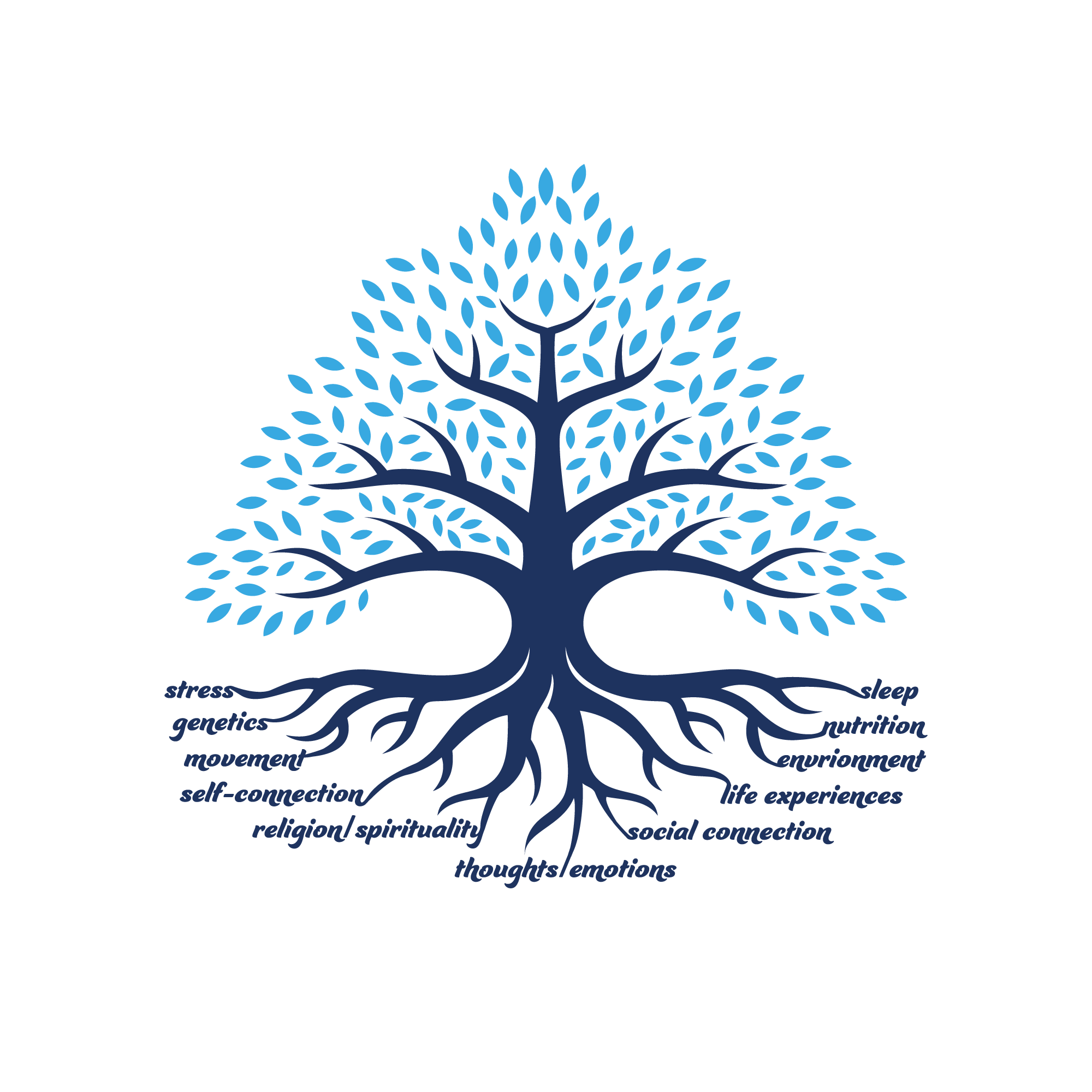
The roots symbolize stability and the diverse components of a person’s strength and resilience. They absorb nutrients and chemicals from the soil to generate essential elements for growth, development, and maintenance. Healthy roots create a robust foundation, anchoring the tree to the earth, representing an interconnected dynamic system. Just as in the natural world, our daily intake – encompassing food, water, people, and media – significantly influences our physical and mental well-being. Ultimately, our daily lifestyle choices and the environment we immerse ourselves in wield the most profound impact on our overall health.
The trunk offers structural support and functions as a pathway for transporting water and nutrients between the roots and crown of the tree. Each trunk layer has its own purpose, but overall, the trunk’s primary job is protecting and supporting the tree. This reminder from the tree’s trunk underscores the importance of taking care of our physical body—what we eat, our level of physical activity, our thoughts, our emotions, our life experiences, and the company we keep—all contribute to our overall well-being. It also signifies how our life experiences are stored in the body, and the body is always there to protect us and help ensure our survival.
Tree branches contribute significantly to a tree’s vitality by supporting photosynthesis, regulating water balance, storing nutrients, and providing habitat for wildlife. These integral components enhance the overall health and growth of the tree within its environment. Metaphorically, branches symbolize the importance of our environment, support systems, and belief in something greater than ourselves. Our family, friends, co-workers, and communities, along with our faith, spirituality, and religious beliefs, remind us that even in moments of weakness, they are there to uphold and support us.
In this season, we aspire to evoke a sense of hope, drawing inspiration from the cyclical nature of trees – just as they transition through seasons, so do people in their journey through life. This metaphor encourages us to embrace the inevitable ups and downs as a reminder that, much like trees weathering unimaginable storms, we can rebound from life’s challenges with self-nurturing and support.
The tree’s symbolism extends to the importance of being rooted in the present moment. Much like a tree is firmly grounded, we are urged to stay focused on the here and now. This awareness helps us cultivate resilience and provides a stable foundation amidst life’s uncertainties.
Lastly, trees exemplify adaptability, a trait essential for survival and growth. In the context of mental health, adaptability becomes a crucial capacity to navigate life’s changes and uncertainties. It involves fostering flexibility and embracing new perspectives and ways of living. Just as trees adjust to their environment, so too can we, demonstrating the strength inherent in adapting to life’s ever-evolving landscape.
Blog Post Tags:
Related Blog Posts
Related Learning Labs
Related Resources
.
- Buscar Tratamiento de Calidad para Trastornos de uso de Sustancia (Finding Quality Treatment for Substance Use Disorders Spanish Version)
- Finding Quality Treatment for Substance Use Disorders
- Focus On Prevention: Strategies and Programs to Prevent Substance Use
- Monthly Variation in Substance Use Initiation Among Full-Time College Students
- The National Survey on Drug Use and Health (NSDUH) Report: Monthly Variation in Substance Use Initiation Among Adolescents

